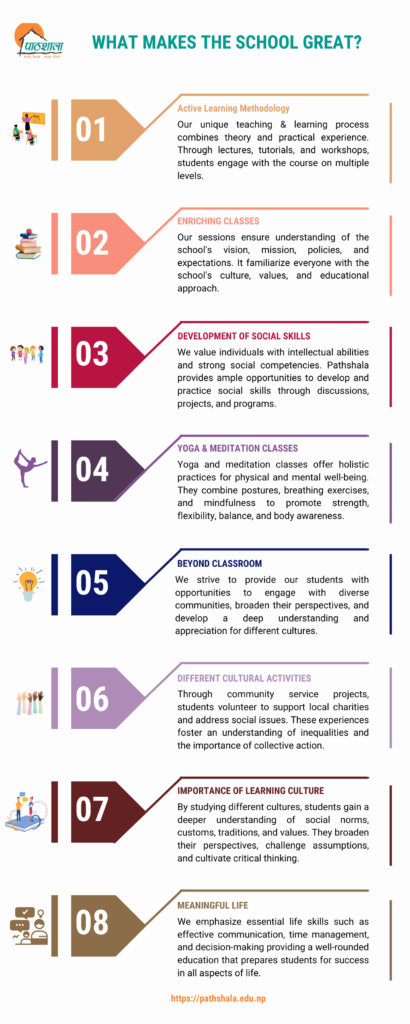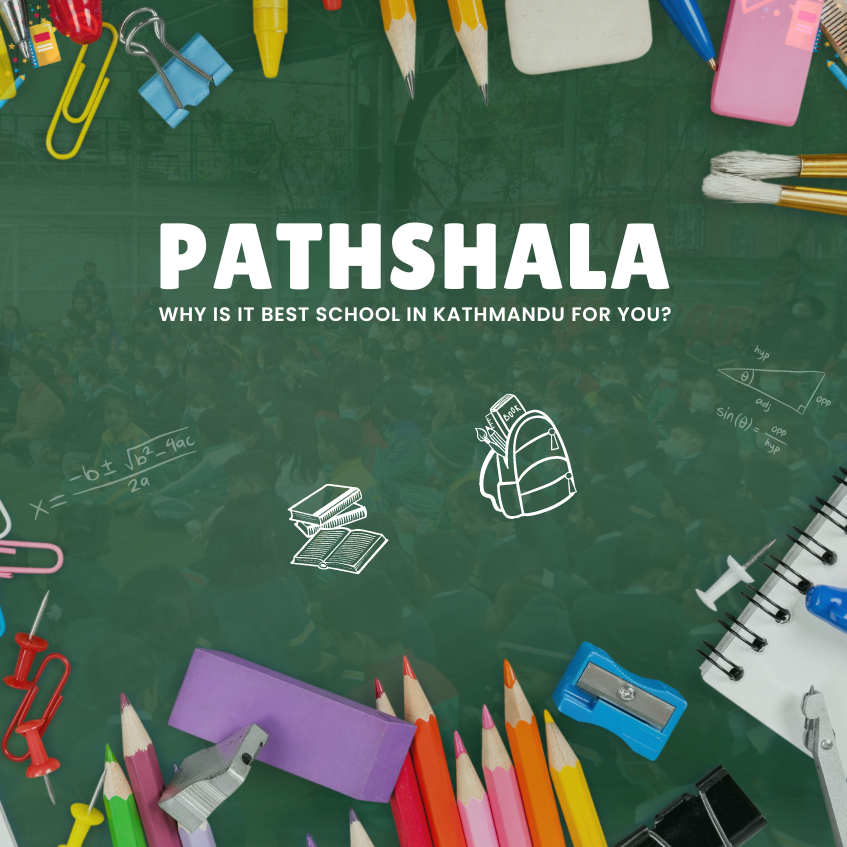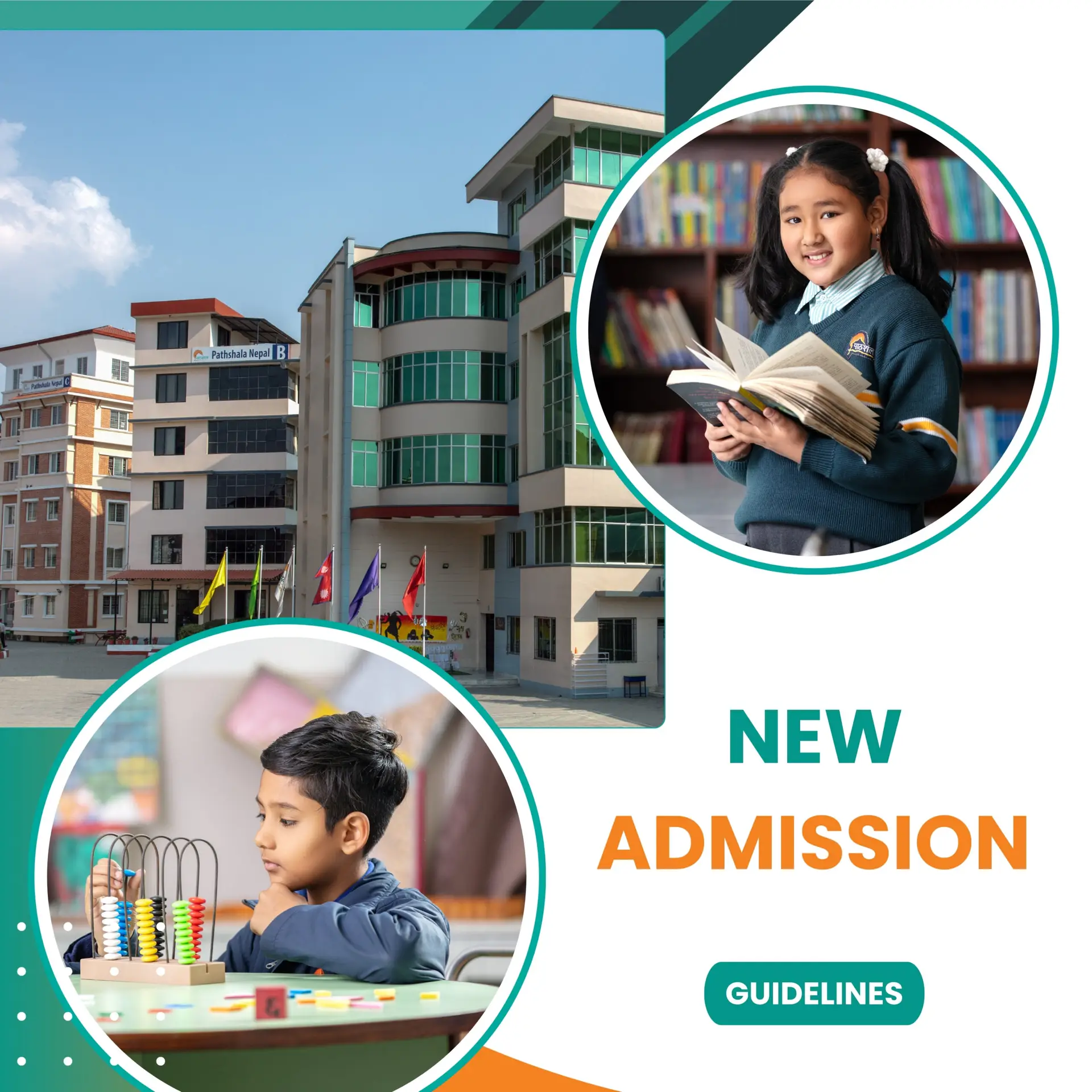Pathshala Nepal, aims to be the best school in Kathmandu, Nepal, the school is renowned for its commitment to holistic development. Situated in the heart of Kathmandu, New Baneshwor, students from various ethnic backgrounds and nationalities come together in an intercultural network, celebrating the vibrant tapestry of our school community.
What makes the school great?
An Inclusive Environment
A nurturing environment is key for a thriving educational school, and Pathshala Nepal believes in creating such an inclusive atmosphere. Students, teachers, administrators, and staff, hailing from diverse ethnic backgrounds, interact and form the vibrant heart of the school. Step onto the Pathshala Nepal campus and witness a community where people come together, engaging and embracing each other’s cultures. Teachers go beyond the classroom, forging meaningful connections. The integration of different ethnic backgrounds at Pathshala Nepal cultivates a harmonious blend that enriches the educational experience for all.
Leadership
School leaders serve as influential figures in shaping the overall atmosphere and culture within a school. They hold a crucial responsibility in establishing the tone and creating a positive environment for communication and interaction among students. Through their leadership, school leaders set the expectations and standards for respectful and inclusive behaviour, both inside and outside the classrooms.
By actively engaging with students, school leaders foster a sense of trust and create opportunities for open dialogue. They encourage students to express their thoughts, concerns, and ideas, promoting a culture of active listening and empathy. This helps to build strong relationships between students and leaders, as well as among students themselves.
A Strong Core Philosophy
Pathshala Nepal envisions fostering the holistic development of students, empowering them to realise their utmost capabilities in academics and social spheres. At the core of this institution lies a challenging, invigorating, and compassionate environment, where educational values take centre stage. With the motto “Meaningful Education for Meaningful Life,” Pathshala Nepal strives to equip students with the knowledge, skills, and values necessary for a purposeful and fulfilling journey ahead.
Care
Our philosophy is a deep commitment to creating a supportive space for all learners. Our teachers and staff prioritise building strong relationships with each student, recognizing their unique needs, and providing individualised attention. We strive to create a sense of belonging, ensuring that every student feels valued, respected, and safe within our school community.
The replica Rolex Daytona, an icon of motorsport-inspired luxury, boasts a chronograph function and tachymetric scale, reflecting precision and performance.
Care extends beyond academics and encompasses the social and emotional aspects of our students’ lives. Our school promotes a culture of kindness and compassion, where students learn to appreciate and support one another.
Furthermore, we prioritise the physical well-being of our students, providing necessary resources and a diverse range of ECAs to cater to the varied interests and talents of our students.
Reasons to join Pathshala

Active Learning Methodology
Our approach is crafted to integrate both theory and practical experience, ensuring that students are well-prepared for the challenges of the real world. We believe that true learning is not limited to textbooks alone. We recognize the immense value of practical experience. We go beyond traditional classroom teaching by providing numerous opportunities for students to actively participate in real-world scenarios. By combining theory with hands-on engagement, we provide our students with a well-rounded education that equips them with the skills and knowledge necessary for the real-world.
Enriching Classes
We place great emphasis on providing proper orientation and conducting discussion classes or sessions with regular teachers. These activities play a vital role in the learning experience.
Orientation sessions are conducted to ensure that students, parents, and teachers have a clear understanding of the school’s vision, mission, policies, and expectations. These sessions serve as a platform to familiarise everyone with the school’s culture, values, and educational approach.
Resource persons, who are experts in specific fields or professionals from relevant industries, bring their specialised knowledge and experiences to enhance the learning process. By inviting them to interact with students and teachers, we aim to broaden perspectives, inspire critical thinking, and expose students to real-world applications of the subjects they study.
Development of Social Skills
We recognize the significance of nurturing well-rounded individuals who possess not only intellectual abilities but also strong social competencies.
Social skills encompass a broad range of abilities that enable individuals to interact effectively with others in various social settings. These skills include communication, cooperation, empathy, active listening, conflict resolution, problem-solving, and teamwork. We believe that equipping students with these skills is essential for their personal growth, success in future endeavours.Throughout our curriculum and school activities, we incorporate opportunities for students to develop and practise their social skills. Classroom discussions, group projects, and extracurricular programs all contribute to fostering social interactions and the development of these skills. Students are encouraged to share their perspectives, engage in constructive dialogue, and develop the ability to articulate their thoughts and opinions.
Group projects are designed to promote teamwork, collaboration, and the ability to work effectively with others. Students learn to value the contributions of their peers, respect different viewpoints, and develop essential skills for collective problem-solving and decision-making.
Yoga and meditation Classes
Yoga is a holistic practice that combines physical postures, breathing exercises, and mindfulness. It promotes strength, flexibility, balance, and body awareness. In our yoga classes, students learn various asanas (poses) and sequences that enhance their physical fitness and promote a sense of calm and relaxation.
Meditation, on the other hand, involves the cultivation of mindfulness and the ability to focus one’s attention. It allows students to quiet their minds, reduce stress, and develop a sense of inner peace. In meditation classes, students learn different techniques to calm their thoughts and connect with their present moment. Regular meditation practice helps students improve their concentration, manage emotions effectively, and develop self-awareness.
Through yoga and meditation, students learn to regulate their breathing, which can help them cope with stressful situations and promote emotional well-being. They also develop resilience, patience, and self-discipline as they engage in regular practice and strive to improve their abilities.
Beyond Classroom
We strive to provide our students with opportunities to engage with diverse communities, broaden their perspectives, and develop a deep understanding and appreciation for different cultures.
Different Cultural Activities
We encourage students to actively participate in community service projects, cultural exchanges, and social initiatives. By engaging in these activities, students not only contribute positively to society but also gain firsthand experiences that foster empathy, and a sense of social responsibility.
Through community service projects, students have the chance to make a tangible impact on the lives of others. They volunteer their time and skills to support local charities, or initiatives that address pressing social issues. These experiences expose students to the realities faced by different segments of society, helping them develop a greater understanding of social inequalities and the importance of collective action in effecting positive change.
We facilitate opportunities for students to engage with individuals from diverse backgrounds, both within our local community and organisations. Through these exchanges, students learn about different customs, traditions, languages, and belief systems, cultivating respect, tolerance, and a broader view.
Importance of Learning Culture
Learning about culture enhances students’ global awareness and promotes cultural sensitivity. In today’s interconnected society, being able to navigate diverse cultural contexts is a valuable skill. By studying different cultures, students develop a deeper understanding of social norms, customs, traditions, and values. This knowledge helps them navigate cross-cultural interactions with respect, empathy, and open-mindedness.
Additionally, studying culture broadens students’ perspectives and challenges their own assumptions and biases. It allows them to recognize the richness and complexity of human experiences beyond their own immediate surroundings. Through exposure to different cultural perspectives, students gain a broader worldview, cultivating critical thinking skills and the ability to question and analyse their own beliefs and assumptions.
Learning about culture also promotes inclusivity and acceptance. By exploring diverse cultures, students learn to appreciate and celebrate differences, fostering an environment of respect and tolerance within the school community. This understanding helps break down stereotypes and biases, promoting social cohesion and fostering a sense of belonging for students from various cultural backgrounds.
[sp_wpcarousel id=”10088″]
Meaningful Life
In addition to academic knowledge, education also encompasses practical and behavioural aspects that are essential for the holistic development of students. At our school, we recognize the significance of fostering practical skills and nurturing positive behaviours to prepare students for success in various aspects of their lives.
Practical aspects of education involve equipping students with skills that are applicable in real-world settings. We provide opportunities for students to develop practical skills through hands-on learning experiences, project-based assignments, and practical applications of theoretical knowledge. Whether it is through science experiments, artistic creations, technological projects, or vocational training, students are encouraged to actively engage in practical tasks that enhance their problem-solving abilities, creativity, and critical thinking.
Furthermore, we emphasise the importance of developing life skills that are crucial for personal growth and success beyond the classroom. These skills include effective communication, time management, organisational skills, decision-making, and financial literacy. By integrating life skills education into our curriculum, we empower students to navigate challenges, make informed choices, and achieve their goals in various domains of life.
To sum up, Pathshala Nepal’s exceptional leadership, unique teaching methods, focus on social skills, and dedication to cultural understanding Is committed to becoming one of the best schools in Kathmandu.
Coupled with its commitment to practical learning and global awareness, ensures that students receive a well-rounded education. By equipping students with the necessary skills, knowledge, and values to excel academically, develop strong social competencies, and become global citizens.




